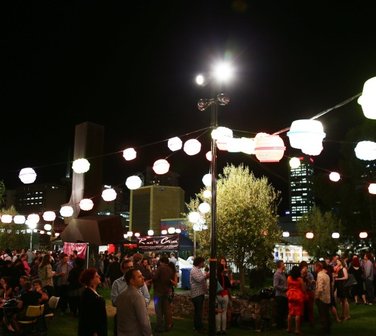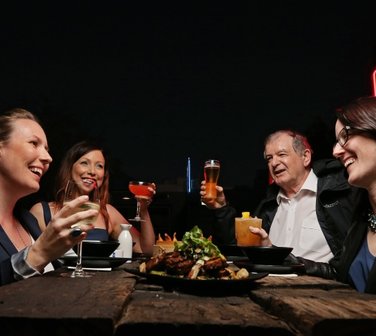At loggerheads over liquor licensing
Scott Taylor is one of Perth’s leading hospitality impresarios. With his sister Angie, Taylor runs St Georges Terrace bar and restaurant The Trustee, Beaufort Street cafe The Merchant and its next-door neighbour, the “pop-up” bar Enrique’s School for Bullfighting.
Each venue is quite different in scale and character but all would be considered among the best of their class in the State.
Fronting a news conference with Opposition Leader Mark McGowan this week, Taylor went on a tear.
“Every single time I’ve lodged a liquor licence application, as a matter of course, Police and Health have objected, regardless of the merits of the case, ” he said.
“This is one of the big issues standing in front of high-quality hospitality, and the ability for us to operate professionally . . . and also profitably.
“Compliance (obligations) means there is at least 12 months between you deciding to start a project and getting to the end and actually opening the doors. It’s bordering on ridiculous, it’s bordering on time-wasting. This is the very definition of the nanny State.”
The news conference, at Enrique’s on Beaufort Street, was called by McGowan to announce a new policy on liquor laws that would put tourism, community and cultural benefits on an equal footing with health and public safety concerns when WA’s liquor licensing authority considers whether to grant a permit.
Mr McGowan was seeking to regain ownership of an issue that should be a political strength for him — as liquor minister eight years ago, he shepherded through Parliament the small-bar laws that have contributed to the renaissance in the hospitality scene in WA’s inner city, suburbs and towns. He’s doing so by capitalising on a perception that liquor licensing remains mired in obstructionism and red tape.
The impression that Taylor and McGowan created — and it is one that has been regularly echoed by industry participants, including the outspoken chief of the WA Australian Hotels Association Bradley Woods — is that the Police Commissioner and the executive director of Health object to licence applications as a matter of routine.
Karl O’Callaghan’s spokeswoman provided figures that police involved themselves in just 17 per cent of licence applications last year and the Department of Health said it intervened in 13 per cent.
Over the same period, nine small-bar licences were granted, 14 tavern and tavern restricted licences, three hotel and hotel restricted licences and none for nightclubs.
It’s difficult to work out who’s correct.
“We’re not enriching uranium. It’s just gin and tonic and squid sliders, ” Taylor said.
“We’re not trying to take over the world, we’re not going to descend into chaos and anarchy if someone has a glass of chablis at 12.30 at night after having a lovely night out and a dinner.”
© The West Australian
More Dining news: thewest.lifestyle/food/dining









